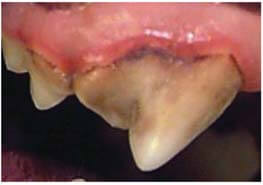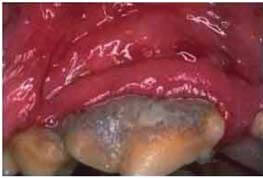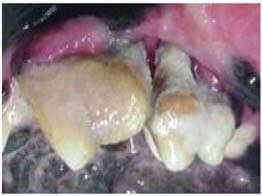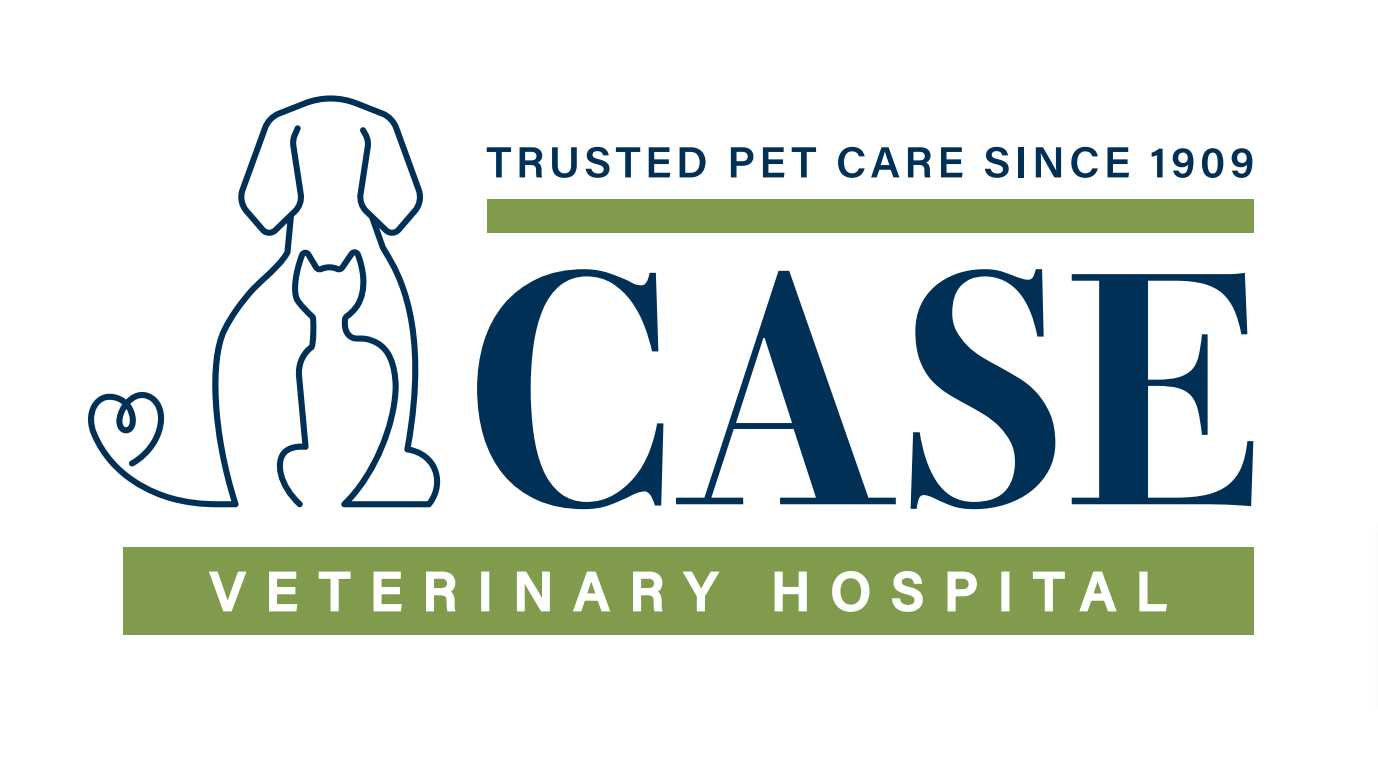So Your Pet Needs A Teeth Cleaning
This is what you can expect:
Prior to anesthesia, your pet will have pre-anesthetic lab work performed. Your pet’s doctor will determine the type of labwork done based on your pet’s age and health status. If the doctor tells you that your pet will need a “health screen,” it will be performed the same day of the dental cleaning. If your pet needs to have a more extensive “general wellness profile,” please bring your pet in one week before the dental cleaning so that we can submit that bloodwork to the laboratory and get the results back in time for your pet’s dental work. If it is not possible for you to come in before the dental work, we can perform this same bloodwork in our laboratory on the morning of the procedure. Please note that if we do the bloodwork in our laboratory, it is more expensive than if we have the time to outsource it to our outside lab.
On the morning of the procedure, your pet will need to be at Case Veterinary Hospital between 7:30 – 8:30 AM, and a technician will discuss the procedure and answer any questions you may have. Your pet will need to arrive with an empty stomach, so do not feed any food after 10 PM the night before arrival. They may, however, have water.
After the doctor examines your pet, a pre-anesthetic medication is given that calms them down and eases the transition into anesthesia. Depending on your pet’s age and health status, the doctor may decide to insert an intravenous catheter prior to anesthesia and keep them on intravenous fluids throughout the procedure. Your pet is then put under general anesthesia, and an endotracheal tube is inserted into the “wind-pipe” to keep the airways open. Patients breathe in an anesthetic gas to stay asleep, and their vital signs are carefully monitored. The doctor will also give an antibiotic injection.
During a dental cleaning, the teeth are scaled and polished, much like what occurs at your own human dentist. Please note that when your pet is asleep, and we are able to get a very close look at the teeth, we sometimes find abnormalities that we did not expect prior to anesthesia. In these instances, we may need to perform dental x-rays to make sure that the teeth are not only healthy above the gumline but below the gumline as well. There may also be diseased teeth that need to be removed or extracted. While we make every effort to perform as many procedures as we can at one time, there are instances (ex. an animal that needs multiple extractions or a root canal) where we clean the teeth on the first visit and have the pet return a second time to finish any remaining procedures. If you would like to be contacted for any unforeseen decisions that need to be made, it is IMPERATIVE that you leave a number at which you can be easily reached. Since your pet is under anesthesia, we don’t have the luxury of waiting for returned phone calls.
Most of our dental patients go home the same day that they are dropped off. If you arrive between 4:30 – 5:30 PM, a veterinarian will discuss the dental findings and procedures performed. Remember that one of the most important ways to keep your pet’s teeth looking healthy is to maintain them at home. Refer to the rest of this pamphlet for further information on keeping the teeth healthy at home.
At Case Veterinary Hospital, we feel strongly that dental disease is a serious concern for our patients. Not only can dental disease result in pain for our animals, but if allowed to progress, there can be a spread of bacteria from the mouth to the rest of the body. This could result in secondary damage to other parts of the body like the kidneys or the heart. We worry about dental disease in cats because when it results in them not eating well, we can get life-threatening liver disease.
It is best to start a dental program early in life so that we can prevent significant dental disease. This involves not only preventative dental cleanings here but also dental care at home. You can do several things at home for your dog and/or cat to take care of the teeth. At-home care includes: brushing the teeth, using dental rinses, using appropriate chew toys or treats, and Science Diet T/D food. Even with the best at-home care, we will still periodically recommend dental cleanings in our clinic.
We also like to start a dental care program early in life because if we start cleaning the teeth before there are major issues, it usually takes less time under anesthesia to clean the teeth, and there are fewer issues to address (periodontal disease, extractions, etc.). It is safer to have a young, healthy animal under anesthesia for a shorter period for preventative oral maintenance than to have a senior pet that has to be under anesthesia for a longer amount of time to address multiple dental problems. Having said that, many of our current dental procedures are on our older patients, and they do quite well and feel much better when we are able to take care of any oral problems.
One of the common questions we get asked when we recommend dental work is about the cost. Obviously, the cost will vary depending on the preliminary workup that needs to be done, the condition of the teeth before the procedure, whether or not any dental x-rays need to be performed, and whether we have to do anything other than clean the teeth. We recommend a more comprehensive pre-anesthetic workup in our older patients. This usually consists of bloodwork and urinalysis, and occasionally, if there are any underlying heart problems, we may recommend some tests for the cardiovascular system. If we have to perform any ex- tractions or address any periodontal pocketing, there are fees involved with this. In order to simplify this for our clients, we have come up with estimates to address the different types of dental disease. We have chosen to call them mild, moderate, or severe.



Please note that sometimes we do not know the severity of the dental disease until after the pet is under anesthesia as we cannot probe under the gumline on an animal while they are awake for their exam. If there is any unexpected dental disease, we will call you prior to performing any more involved procedures. Please be available the day of your pet’s dental cleaning in case we need to contact you.
For more information on dental care, please view this section on our Services page.
